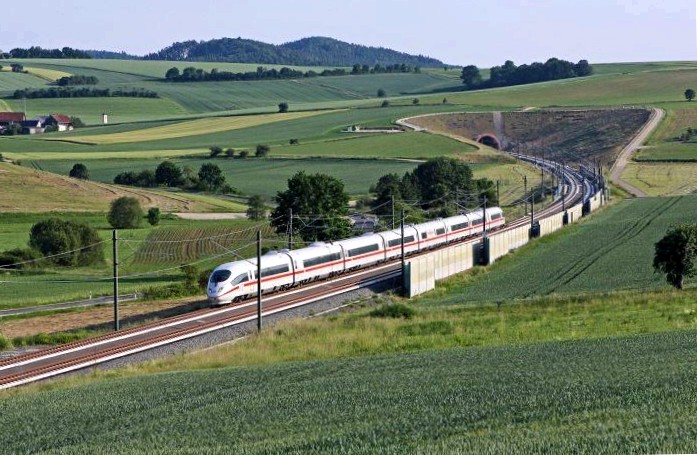Coburg doesn’t want to have to change trains: the town loses its ice stop?

The resolution is clear and symbolic: "the city of coburg rejects the previously known plans for the target timetable 2030, the so-called deutschland-takt for the railroads. It disapproves of the fact that an ICE stop in coburg is no longer included. The city demands a strong commitment from all elected representatives in the parliaments to preserve the ICE connection for coburg in the long term. The administration is instructed to take all possible measures necessary to secure coburg’s permanent ICE connection."
It remains to be seen what kind of reductions these could be. The resolution was passed unanimously on thursday after mayor norbert tessmer (SPD) and IHK president and city council member friedrich herdan (CSU) pointed out that they had sent a very clear letter to transport minister andreas scheuer that day. The reason for this is the latest draft for a "target timetable for germany", which no longer provides for an ICE connection via coburg, but only an "ICE-light at 160 kilometers per hour between nurnberg and erfurt. This train would run hourly to nurnberg and every two hours to erfurt. In these two hub stations, travelers from coburg had to change trains in any case.
However, the mayor and the president of the chamber of industry and commerce demand a two-hour ICE stop for coburg. "If bamberg and erlangen are connected every half hour, it is reasonable to expect that coburg will get a stop every two hours", said friedrich herdan at the city council meeting. After all, coburg station has a catchment area of 1.4 million people. Depriving such a region of long-distance traffic would be a violation of the requirement in the bavarian constitution to ensure equal living conditions in all parts of the state. A two-hour stop in coburg is feasible, as tessmer and herdan explain in their letter: the ICE on the munich-berlin line with stops in erlangen, bamberg and lutherstadt wittenberg, among other places, has a standing time of eight minutes in erfurt. If this standing time is shortened every two hours and the stop in erlangen is cancelled, then a stop in coburg is possible. In erlangen, so many connections to bamberg were offered that the journey time for passengers from there was only 15 minutes longer.
However, the railroad line between coburg’s main station and dorfles-esbach had to be double-tracked for such a service, the letter continues. Because, according to the travel time analysis, the ICE trains were delayed at the "coburg nord" station (rodacher strabe). However, the double-track extension is a cost-effective and efficient measure compared to a new line between wurzburg and nurnberg, write tessmer and herdan.
It is important for business travelers from coburg to have connections to berlin and munich where they do not have to change trains. Because the risk of missing a train is too great, he concludes.
Response from the ministry
In response to a question from our newspaper, the federal ministry of transportation commented as follows. The study is the "first expert draft for a future target timetable for germany-takt". The target timetable for the germany-takt contains the routes and capacities on which the expansion of the infrastructure will be based in the future." Only those lines that urgently need to be upgraded or built on the basis of this target timetable will be included in the federal transport infrastructure plan. DB fernverkehr AG or other providers decide "on their own entrepreneurial responsibility" which trains will actually run , the answer from the ministry continues. DB fernverkehr had also always emphasized that it had nothing to do with this target timetable.
In the future, it will be the railroad companies that decide whether and which trains will stop in coburg, the ministry emphasizes. "With the deutschland-takt target timetable, the federal government is ensuring that the infrastructure is developed in such a way that, in addition to two hourly ICE lines on the munich – berlin route, an hourly connection from coburg to south and a two-hourly connection to north is possible. The "deutschlandtakt" timetable does not specify an operational offer for train connections."